Although here at Young Living we’re mostly known for our high-quality essential oils, we also offer a variety of food supplements and place great importance on knowing that our insides are cared for just as much as our outsides. With that in mind, in this blog, we’ll be talking about Vitamin B and all its brilliant benefits, helping you to learn how to ensure you’re getting enough Vitamin B and understanding how it can work alongside your daily life.
What is Vitamin B?
Vitamin B is composed of eight individual B vitamins, all of which contribute to the healthy functioning of the body. They are the following:
B1 (thiamine)
- Thiamine was one of the first B vitamins to be discovered, hence its association with the number 1, and can be found in foods, food supplements and multivitamins. As with all B vitamins, thiamine is water soluble and helps the body turn food into energy.
B2 (riboflavin)
- Riboflavin, or Vitamin B2 is present at the levels people require in most dairy products but can also be found in sources such as egg yolks and red meat. It helps to keep eyes, skin, and the nervous system healthy, and allows the body to release energy from food.
B3 (niacin)
- Niacin is an important nutrient that the body requires to function efficiently. It can be found naturally within food but also within food supplements and helps the body release energy from food.
B5 (pantothenic acid)
- Pantothenic acid contributes to normal energy-yielding metabolisms and normal mental performance, making it extremely important for the body. It’s an easy vitamin to incorporate into your diet as it’s found in many foods such as broccoli, certain cabbages, white and sweet potatoes, and even whole-grain cereals. It can also be sourced via food supplements.

B6 (pyridoxine)
- Pyridoxine, which is also known as Vitamin B6, is a vitamin that benefits the central nervous system and metabolism. Sources of food that provide high levels of Vitamin B6 include chickpeas, chicken breast, and tofu.
B7 (biotin)
- B vitamins, and specifically biotin, help support the overall wellness of your skin, hair, and nervous system. While a healthy and balanced diet should ensure the right levels of biotin in your body, this can be supported by an additional food supplement.
B9 (folic acid)
- Vitamin B9 is an essential nutrient that’s mainly present as folate and folic acid. It’s commonly taken in supplement form and even added as a mandatory nutrient to food in some countries. High-folate foods include avocados and asparagus.
B12 (cobalamin)
- Vitamin B12 is an important B vitamin as it supports nerve tissue health, a normal homocysteine metabolism, and the formation of red blood cells. It occurs naturally in many animal-based products such as lamb and pork, but typically does not occur in plant-based foods unless supplemented.
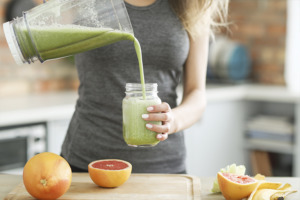
Why Should I Take a Vitamin B Food Supplement?
B vitamins play a vital role in maintaining your overall health and wellbeing. They are often referred to as the building blocks of a healthy body, and have a direct impact on your energy levels, brain function, and cell metabolism. Although Vitamin B can be found in many food groups and can be maintained by enjoying a varied and healthy diet, taking a Vitamin B food supplement offers an extra boost and ensures you receive the levels needed in your daily intake.
What Vitamin B Products Can Young Living Offer?
If you’re on the hunt for a food supplement that contains all eight B vitamins in one handy tablet, look no further than Young Living’s Super B Capsules. Super B is a comprehensive vitamin food supplement that provides all eight B vitamins, bioavailable minerals, and Nutmeg essential oil, providing the support you need on the go. All you need to do is take 2 capsules daily with a meal and enjoy!
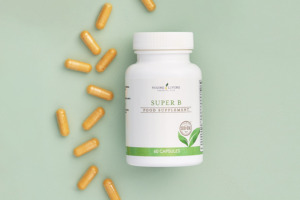
How do you ensure you get enough Vitamin B in your daily life? Write your comments below or contact us at mseublog@youngliving.com

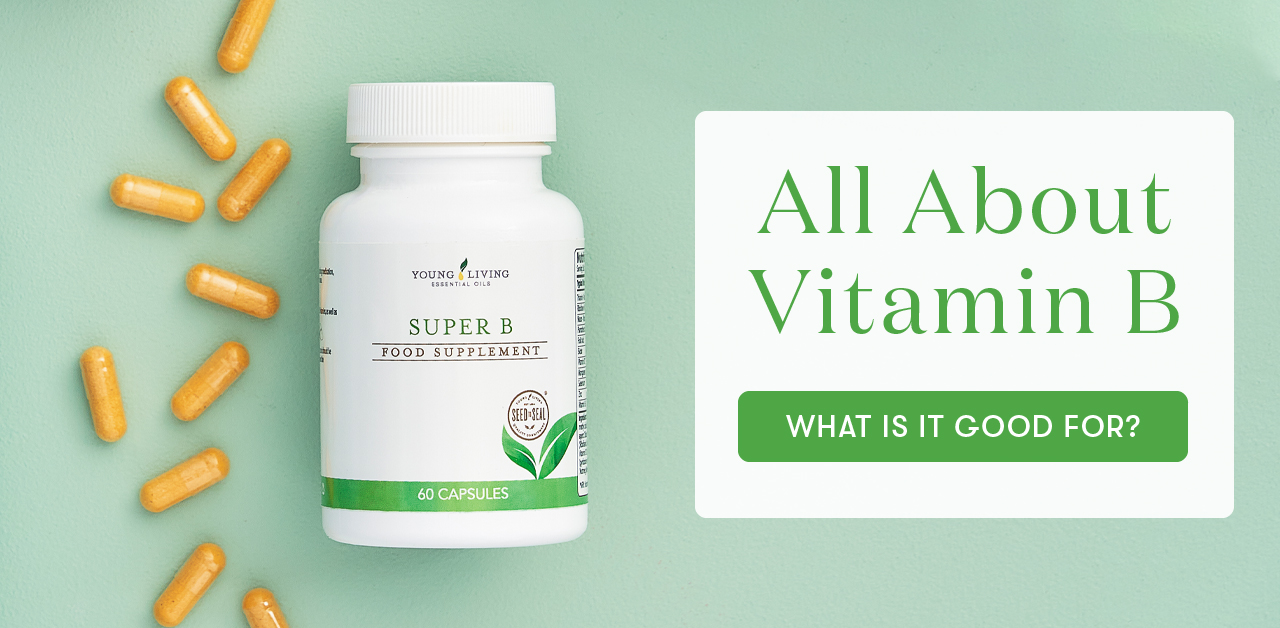





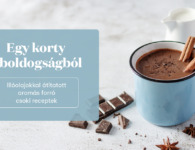






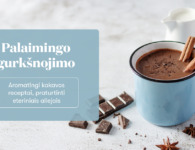


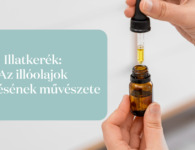
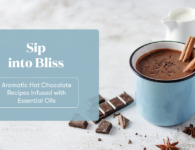

No comments